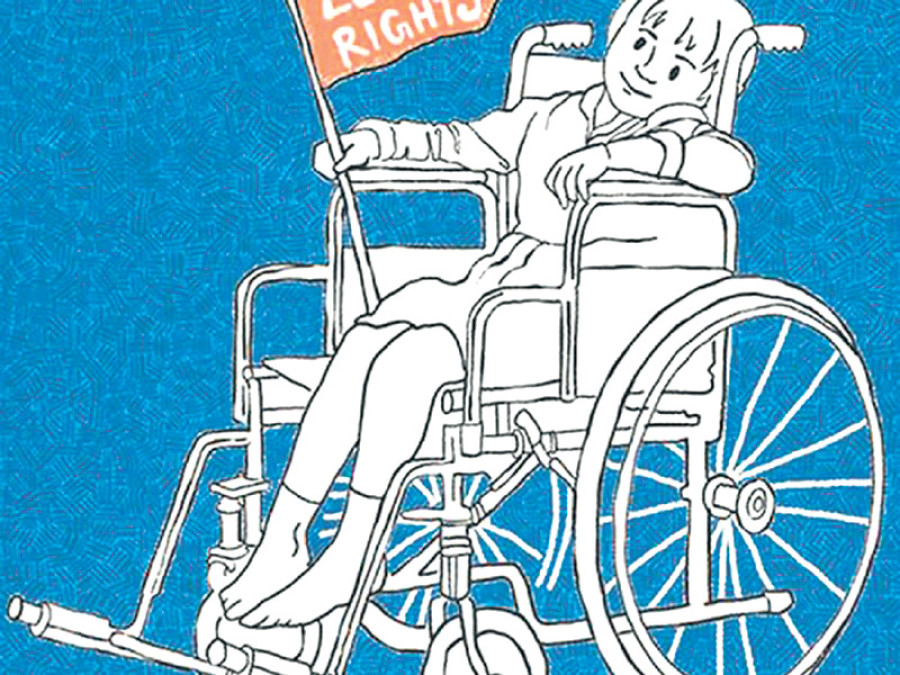Opinion
The uncertainty of tomorrow
Children with disability need a secure future even when their parents are gone
Samridhi Rana Thapa
I recently read an article published in the Guardian titled ‘Facing my fear: to save my autistic son’s future I had to let him go’, written by Elaine Robertson Demby, a mother of a child with autism spectrum. In the article, Elaine confessed that sending her son, Evan, to a residential school in another state was the most difficult decision she had ever made. She did so to ensure his future—a future where he could learn to sustain his life even after she and her husband were dead. The fears and concerns of parents who have children with disability in Nepal are no different.
“Most importantly, we want our son to be happy, even after we are gone. There is not a single day when we don’t wonder about his future without us,” shares Dr Sunita Maleku Amatya, a mother of a son with autism and chairperson of the Autism Care Nepal Society (ACNS).
Common parental concerns
Parents are an integral support system for their children with disability, as they enable social participation as well as the access to disability allowance and specialised education for them. So the parents’ concern for the future of their disabled child once they are gone remains. ‘What happens to our child when we are no more? Will my child be able to sustain her life? Where and with whom will he live? Will they continue to participate in education, employment and sports? What about property rights?’ These are some common parental concerns.
In developed countries like the US, policies have been put in place to reassure parents. A father of Nepali origin, now settled in the US, says, “Social and regulatory mechanisms respect, guarantee and monitor the rights of the disabled.” His son has multiple disabilities and lives in a specialised group home, similar to Demby’s child. He adds, “the main reason for having our son live in a group home and away from home was an attempt to make him as independent as possible so that when the eventual unavoidable time arrives, he will be able to take care of himself. We know that he will have a major meltdown but we are hopeful that he will manage to deal with the situation in familiar surroundings. The state federal programmes and his brother will be responsible for him when we are gone. The fact that this kind of social network is available here in the US is a blessing for people with disabilities.”
A better welfare system
Article 19 of the United Nations Convention on the Rights of Persons with Disabilities (UNCRPD) titled ‘Living independently and being included in the community’ expects Nepal as a state to ensure that people with disabilities can live independently and be included in the community. Article 19b stipulates, “Persons with disabilities have access to a range of in-home, residential and other community support services, including personal assistance necessary to support living and inclusion in the community, and to prevent isolation or segregation from the community.” None of the articles in UNCRPD is dedicated to residential interventions catering to all levels of socio-economic status of people with disabilities without parents. The uncertainty faced by most parents with children with disability, especially those with neuro-developmental disability, likely lies in the fact that their child may experience discrimination. Discrimination under Article 2 of the CRPD is explained as the “exclusion or restriction on the basis of disability which has the purpose or effect of impairing or nullifying the recognition, enjoyment or exercise, on an equal basis with others.”
As a disability inclusive development worker, I strongly feel that Nepal direly needs a welfare system that ensures children with disability can continue to enjoy the highest affordable standards of living even after the loss of their parents or guardians. The welfare system should empower parents and guardians of children with disability to believe that their child will be safe and will have reason to be happy and engage socially. Expressing similar sentiments, Dr Amatya says, “I hope to have independent apartments with trained people where my son along with a few others can live a meaningful and dignified life. We want to see him live there when we are still around.”
My aim in addressing this issue is to begin a discussion on the formation of trust bodies and sustainable specialised residential care homes for disabled people belonging to all age groups at a government, non-government or private level. For example, those with economic means could come together to establish a fund from the property the child with disability is entitled to inherit. The financial resources and property could be utilised in a way that generates regular income and ensures inclusion and various opportunities for these children and adults.
Thapa works with the Karuna Foundation Nepal as a Senior Officer-CBR Programme




 12.12°C Kathmandu
12.12°C Kathmandu










